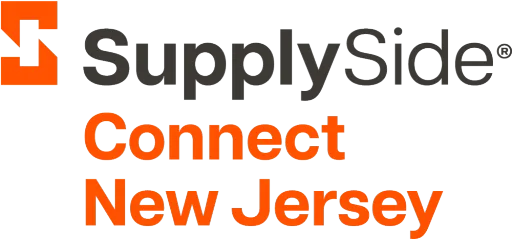How to Overcome the Risks of Cost Cutting for OTC Drug Manufacturers

Is cost-cutting affecting compliance? Maxine Fritz discusses how lack of regulation in the OTC industry has led to manufacturer cost cutting and lapses in GMP compliance. Find out how OTC manufacturers can overcome these challenges to ensure they meet all relevant regulatory requirements.
OTC Manufacturers Held to the Same Standards
The result can be a significant amount of variability and inconsistency between audits and auditors, as well as variation in how the GMP requirements are interpreted. For manufacturers, there is an ongoing sense of audit fatigue, while retailers lack confidence that GMP audits are sufficiently able to mitigate risk, despite these ongoing efforts.
According to Maxine Fritz, Executive Vice President for NSF’s pharmaceutical services, “OTC manufacturers are held to the same standard as prescription drugs, such as CAPA management, laboratory controls, validation, qualifications and equipment.
“Because OTCs are not typically considered high-risk drugs, the OTC industry has largely gone unregulated. The FDA can only investigate so many companies, and so, in time, GMPs have lapsed. A lot of manufacturers now need to ensure that they have good quality and are compliant with the regulations.”
However, because the FDA doesn’t have enough resources to investigate every organization, OTC manufacturers are expected to follow monographs to ensure that they meet the established compendial requirements and that ongoing compliance and quality systems are in place. But this trust system doesn’t always work, and, over time, lapses in compliance have occurred.
Lapses Caused by Cost Cutting
In a lot of cases, these lapses occur as a direct result of manufacturer cost cutting.
“Most OTC manufacturers have competitors, and customers will have the choice between branded and non-branded options,” explains Fritz. “To compete, many companies turn to cost cutting. In this process, compliance is often unknowingly reduced or eliminated, and there can be unintended consequences.”
To help OTC manufacturers avoid the pitfalls of cost cutting and ensure that they meet all relevant regulatory requirements, NSF offers a number of expert solutions, including third-party drug audits to current GMPs. These GMP auditing services can be used by retailers for their private-label programs or as part of their overall supplier/vendor qualification and monitoring programs.
“We can conduct gap assessments which identify gaps in regulatory and quality systems and highlight how they can be remediated to prepare for regulatory inspections from the FDA or a third-party recognized certification program,” says Fritz.
Through a hands-on collaborative approach, NSF also helps clients that have received an FDA Form 483 to develop their responses to the FDA, create a CAPA plan and remediate the situation by applying pragmatic solutions to correct any deficiencies.
For OTC manufacturers outside of the United States that are determined to be OAI (Official Action Indicated) by the FDA, the FDA can detain products and prohibit manufacturers from importing them into the country. In these instances, NSF can help international manufacturers with developing and implementing corrective and preventive actions. Fritz says, “It can be complex because often there are language issues, but we can certainly get them ready for their next regulatory inspection and ensure compliance so they can ship their product back into the U.S.”
Example: OTC Products Placed on Import Alert
For example, one Chinese OTC manufacturer turned to NSF when its products were placed on an FDA import alert. NSF needed to identify compliance gaps and provide recommendations to meet FDA requirements under 21 CFR 210 and 211. To achieve this, NSF evaluated the FDA’s findings and developed a four-phase approach for the company.
Phase 1: The first phase, completed by a team of expert NSF consultants, helped to establish a baseline and highlight all existing GMP deficiencies, as well as those identified by the FDA. NSF developed a risk-based corrective action plan that categorized and prioritized the findings and corrective actions based on risk.
Phase 2: NSF provided a team of expert consultants to help the manufacturer remediate based on the risk-based corrective action plan by coaching, mentoring and working collaboratively with the manufacturer’s personnel.
Phase 3: The team performed final effectiveness checks through audits to confirm compliance and effectiveness of the implemented corrective actions and improvements.
Phase 4: NSF conducted a series of mock inspections to prepare the site for any future FDA reinspections and ensure that GMP compliance remained at a consistently high level.
We Can Help — Talk to Us Today
According to NSF: “Our staff and consultants have been in your shoes. We understand. We work with industry experts who have the appropriate range of skills and who constantly seek to fit the right person and the right solution, the first time, to every job.”
We can help you with any issues relating to import alerts, Form 483s and more. Complete the form below, “Ready to Begin the Process,” and request a call with an expert today.
Ready To Begin the Process?
Contact us with questions or to receive a quote.
How NSF Can Help You
Get in touch to find out how we can help you and your business thrive.

What’s New with NSF

GMP and Regulatory Compliance Virtual SupplySide Connect New Jersey Training
January 30, 2025
NSF Granted Reauthorization as a CMMC Third-Party Assessment Organization
January 8, 2025
Sustainable Foods Summit 2025
January 2, 2025